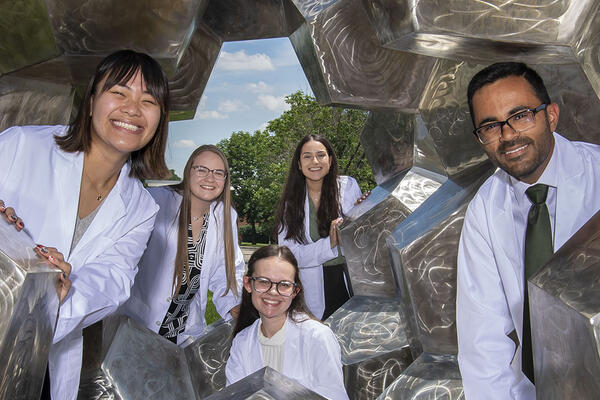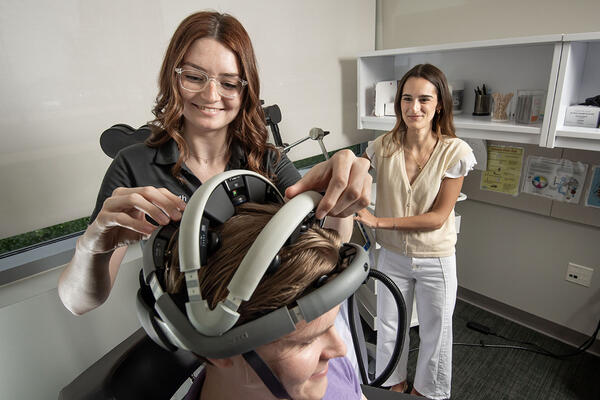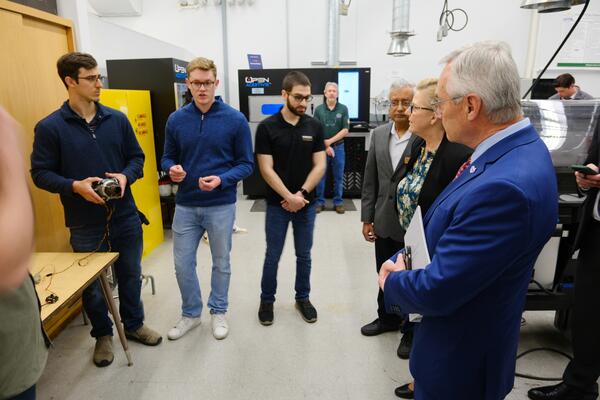Welcome to the Wright State University Department of Neuroscience, Cell Biology, and Physiology.
We are dedicated to sustaining excellence in basic, translational, and clinical research, and in providing the best in undergraduate, graduate, medical education.
NCBP research in Neuroscience, Cell Biology, and Physiology has thematic interests in cellular signaling processes associated with human health and disease.
NCBP faculty are funded through agencies that include the National Institutes of Health, the National Science Foundation, the Department of Defense, the Office of Naval Research, the American Heart Association, the Muscular Dystrophy Association, and other national or international funding agencies. Investigators are supported by state-of-the-art infrastructure including access to core laboratories in imaging, small animal physiology, behavior, genomics, and proteomics.
The B.S. in Physiology and Neuroscience, M.S. in Anatomy, and M.S. in Physiology & Neuroscience degree programs provide an interactive educational experience designed to prepare graduates for careers in the biomedical sciences. NCBP faculty are also active in the education, training, and mentoring of Ph.D. students in the Biomedical Sciences (BMS) Ph.D. program and are integral to medical student education at the Boonshoft School of Medicine.
Degrees and Programs
Undergraduate Degree Program
Graduate Degree Programs
Combined B.S./M.S. Degree Program
Areas of Research
Neuroscience
- Amyotrophic Lateral Sclerosis (ALS)
- Blood brain barrier regulation
- Brain-machine interface
- Control of breathing
- Motor neuron disease
- Movement disorders
- Nerve conduction disorders
- Neural circuits
- Neurodevelopment
- Neuromuscular diseases
- Neuro-rehabilitation
- Pain
- Peripheral nervous system
- Prosthetic control
- Stroke
- Synaptic Plasticity
Cell Biology
- Biodefense
- Biosafety
- Cancer
- Gene therapy/transfer
- Glycans in health and disease
- Host defense mechanisms
- HIV/AIDS
- Intracellular signaling networks
- Immune system
- Metabolic disorders
- Nanotechnology
- Pregnancy associated disorders
- Viruses and viral vectors
Physiology
- Arrhythmias
- Blood pressure regulation
- Cardiomyopathy and Heart Failure
- Critical illness myopathy
- Gastrointestinal disorders
- Ion transport regulation in health and disease
- Inflammatory bowel disease
- Renal function in health and disease
- Sepsis
- Tumor growth





